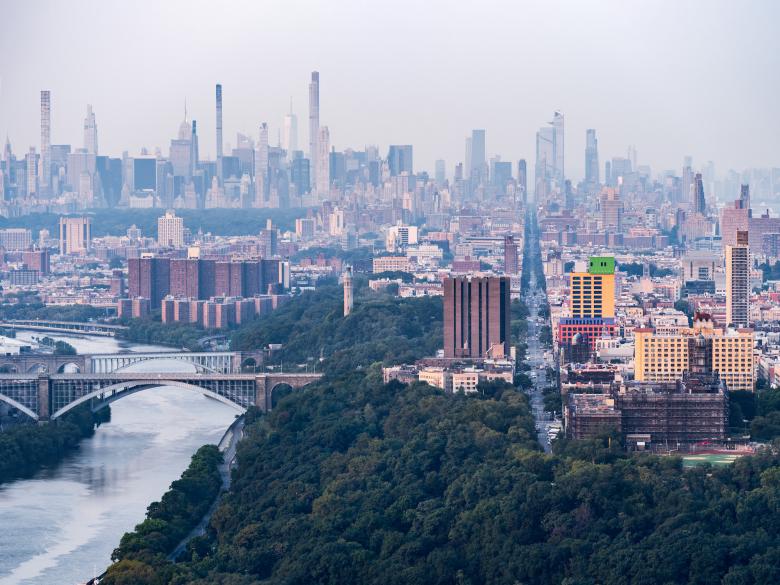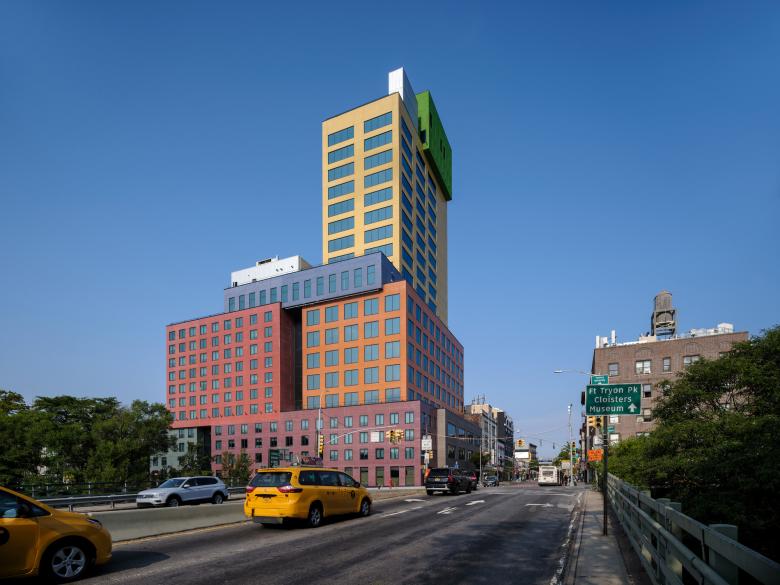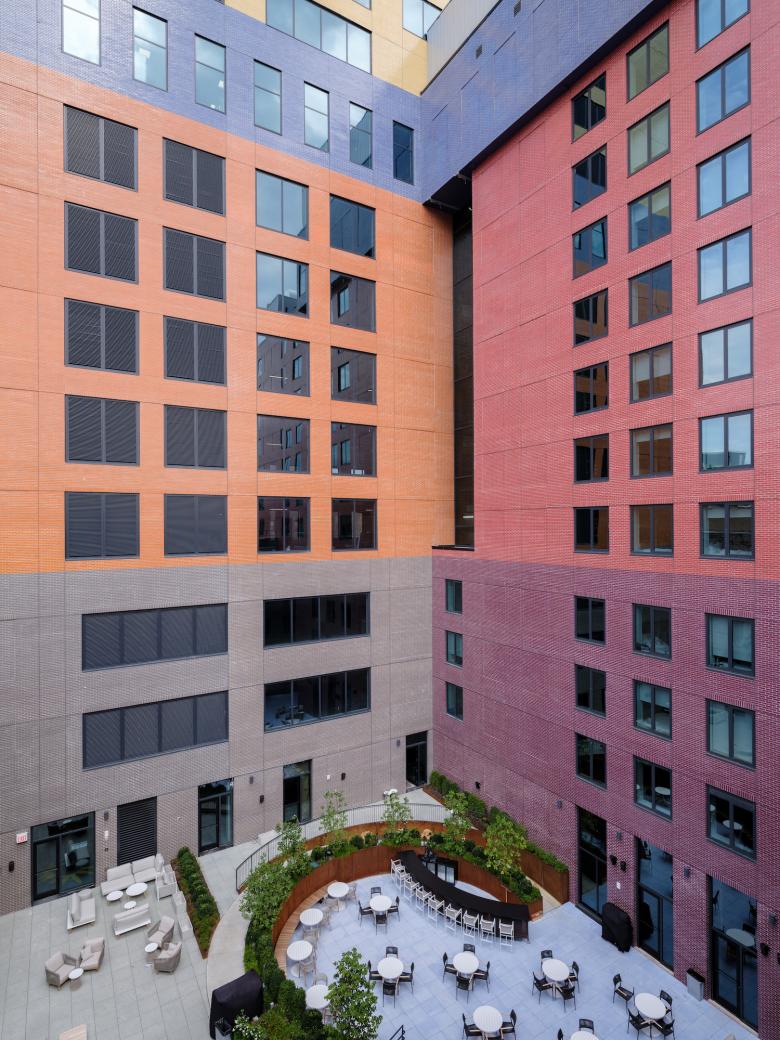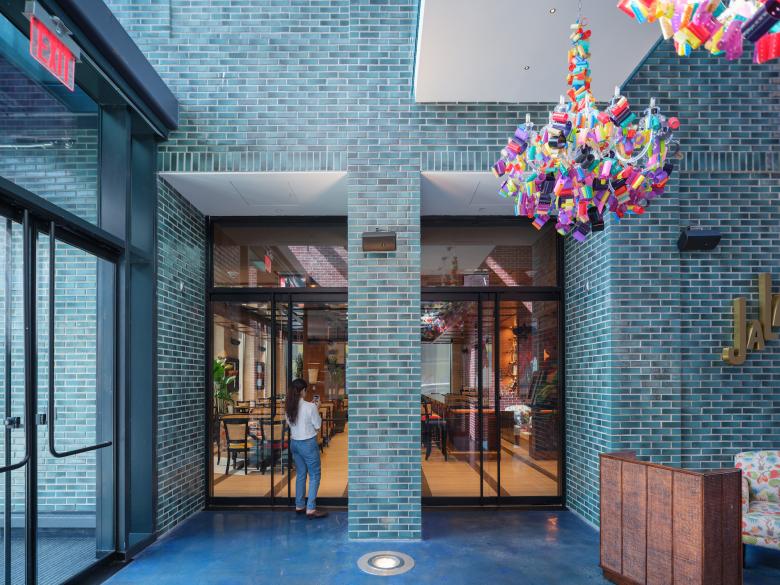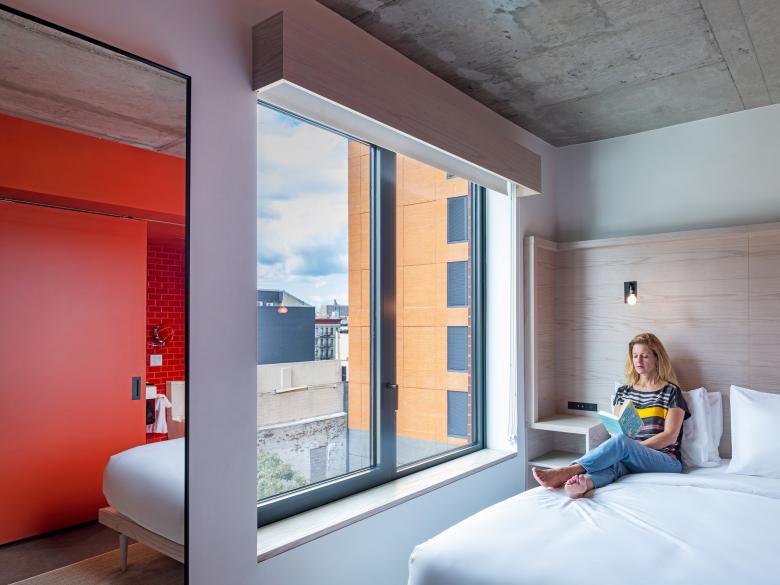MVRDV Completes Its First US Building
Radio Hotel and Tower, described by Rotterdam's MVRDV as a "colorful vertical village," opened in September in Manhattan's Washington Heights neighborhood.
Many people from outside of New York City are probably familiar with Washington Heights as the setting for In the Heights, the 2008 Broadway musical and 2021 film by Lin-Manuel Miranda. The film was shot on location in the Upper Manhattan neighborhood, with the bodega where the main character, Usnavi, works located only five short blocks south of the new Radio Hotel and Tower. Just as the film captures the liveliness of the neighborhood's residents and the colors of the ubiquitous corner bodegas, Winy Maas and the other architects at MVRDV found inspiration in the area's low-scale buildings and colorful storefronts. "We took the smaller blocks that are typical in the neighborhood and stacked them into a vertical village," Maas said in a statement, "add to that the bright colors that you see all around the area, and the project is like a beacon celebrating this part of the city."
A 221-room hotel six miles north of Midtown Manhattan may seem like an odd choice, but the announcement of Radio Hotel's opening describes that it "will serve as an important hub for those traveling for conferences hosted by the Yeshiva University and the New York Presbyterian Hospital, both of which are located nearby." Furthermore, Margarette Lee, partner at Youngwoo & Associates, the project's developer, said they "chose this location because we believe in the neighborhood." And unlike Midtown, "we have a chance here to have an impact." As the stacking diagram below indicates, the hotel is accompanied by retail, office space, and event space on the 12th floor that is aptly named Above The Heights. The whole project cost $300 million.
Radio Hotel and Tower stands out for its height but mainly because of its bright colors. New York City is not known for colorful architecture, old or new. The traditional architecture of Manhattan consists of earthy tones of brick, stone, and terracotta. Frank Lloyd Wright proposed a pink concrete finish for the Guggenheim Museum, but in the end a safer off-white color was instead used. The only precedents that come to this writer's mind are Arquitectonica's Westin New York at Times Square, where colorful metal and glass are appropriate to its context, and Julian Schnabel's pink paint job at his Palazzo Chupi, which helps that building stand out in its West Village location but runs the risk of fading over time.
How will Radio Hotel and Tower fare over time? Instead of stucco or some variation, MVRDV — working with Stonehill Taylor as architect of record — covered each stacked block with a different color of glazed brick: bright green, yellow, blue, red, and orange for the upper volumes; and plum, teal, and gray-brown at street level. This material choice should ensure that the building maintains its appearance as a "colorful vertical village" for a long, long time.

